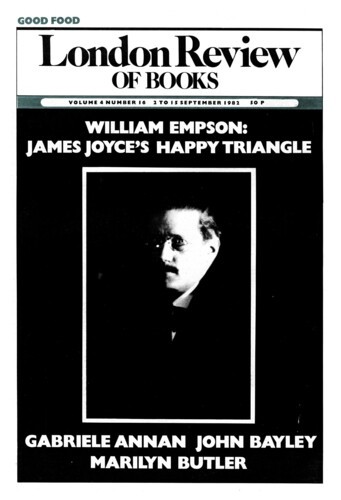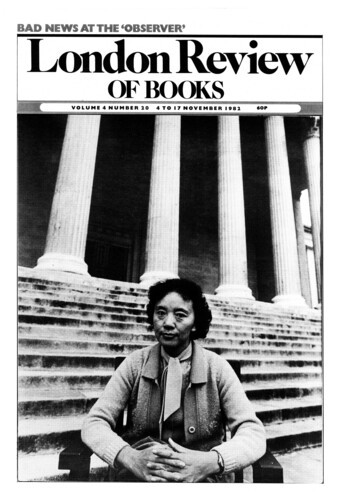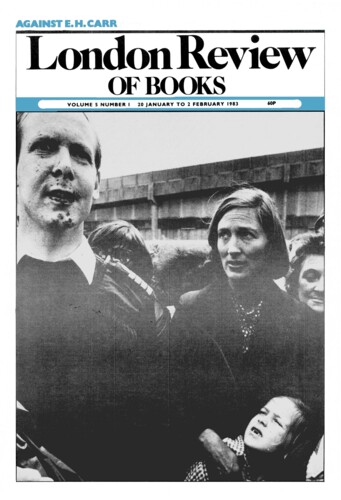Poem: ‘Oxford v. Cambridge v. Birmingham etc’
Tom Paulin, 2 September 1982
Under a stony sun, a slabbed fate, there is a paved land called nothing-original which is the home – the near-buried home – of scholarship and humility; there the god of Notes & Queries takes up our references and a silver priest called Maxwell sings everything in the catalogues. This is karma, acceptance; a bent harijan brushing dung and shards in a walled courtyard. But who...




